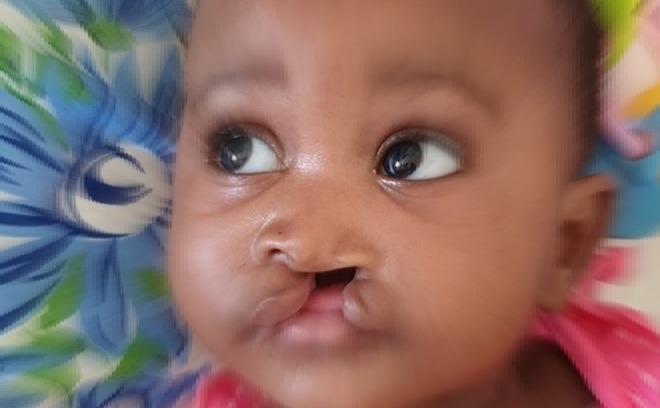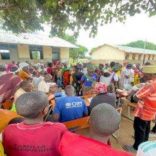Mozambique: "The only solution is to build positive peace" - Yussuf Adam
Mozambique: Cleft lip a serious, widespread health problem – NGO

FILE - For illustration purposes only. [File photo: AMOFEL]
The NGO Mozambican Association Without Cleft Lips (AMOFEL) has warned that cleft lip is a serious and widespread public health problem in Mozambique, while also highlighting the lack of official statistics on the malformation in the country.
“Many children are born with this condition [cleft lip], but unfortunately, as with so many other conditions, we do not have official information from the Ministry of Health, because no studies have been conducted in this regard,” Jerónimo Brilão, founder of AMOFEL, told Lusa. The non-governmental organisation supports children with cleft lip or palate.
According to Brilão, Mozambique still relies on data from the World Health Organization, which estimates that globally, at least one in every 650 children is born with the malformation.
“We did a basic calculation analysing 2019, when there were about 1.9 million live births [in the country]. Assuming that one in 650 [children] had a cleft, we saw that there were many children born that year who could have had a cleft,” he explained.
For AMOFEL, cleft lip is a “serious and very widespread public health problem” in the country, as it complicates, among other things, feeding in the first days of life, “and if they do not feed, they risk death.”
“In less informed families, there are interpretations around the birth of a child with a cleft lip; accusations arise, and the couple begins to distrust each other,” he added, noting that most people, especially in rural areas, do not send these children to school because they are not accepted by other children.
Brilão also noted that since September of last year, AMOFEL has provided surgery to around 136 people with cleft lips, mostly children, across four campaigns.
“Our first campaign was last year, in September 2024, in Zambézia province, in the district of Mocuba. In that first campaign, we operated on 56 patients in one week. That number was significant, at least here in Mozambique, for the type of surgeries carried out entirely by a team of Mozambicans,” he said.
The second and third campaigns took place in June and August this year in the provinces of Inhambane and Tete, in the south and centre of the country, where 40 people were operated on.
“We have around 40 patients awaiting surgery and we hope to operate on all of them,” Jerónimo Brilão added, referring to the NGO’s upcoming fourth campaign.













Leave a Reply
Be the First to Comment!
You must be logged in to post a comment.
You must be logged in to post a comment.